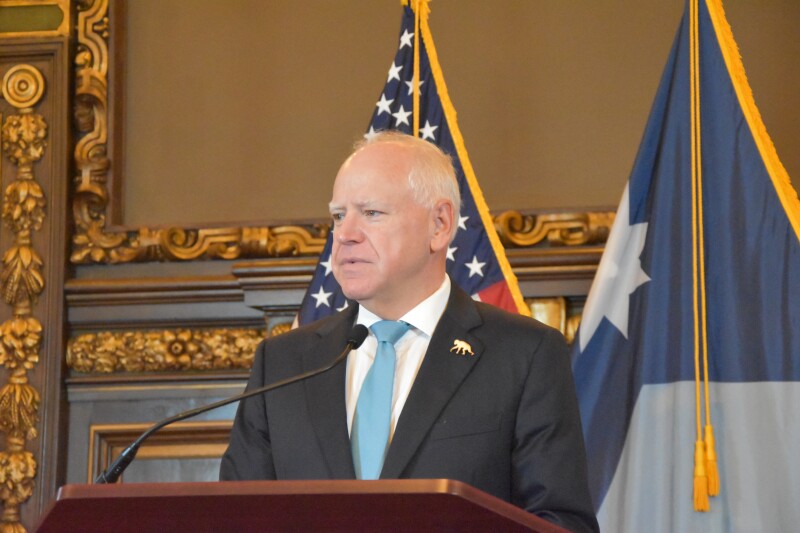UPDATE: Minnesota Governor Tim Walz has just signed a historic cannabis compact with the Prairie Island Indian Community on October 20, 2025, marking a pivotal moment in the state’s evolving cannabis landscape. This agreement sets the stage for collaborative regulation of cannabis between state authorities and the Tribal Nation located north of Red Wing.
Officials from the Office of Cannabis Management (OCM) confirmed that this compact will facilitate partnership opportunities for state-licensed cannabis businesses, enhancing product supply while respecting the Tribe’s sovereignty. Eric Taubel, OCM Executive Director, stated, “This compact provides state-licensed cannabis businesses the opportunity to partner with Prairie Island Community and boost supply of product while maintaining the Tribe’s inherent sovereignty and right to self-govern.”
The Prairie Island Indian Community is ready to commence wholesaling activities with state-licensed businesses as early as next month, signaling a rapid expansion in Minnesota’s recreational cannabis market. This development follows the Minnesota Legislature’s 2023 decision to legalize cannabis possession, use, and cultivation in the state, directing the governor to negotiate agreements with Tribal Nations.
The compacts are crucial for regulating the cannabis market, prioritizing public health and safety through stringent measures including product testing and data analysis. Notably, the Prairie Island compact is the third signed between the state and a Tribal Nation, following similar agreements with the Mille Lacs Band of Ojibwe and White Earth Nation.
Tribal Council President Grant Johnson expressed enthusiasm for the partnership, emphasizing their commitment to meet demand in Minnesota’s burgeoning market. “We’re very proud of the disciplined systems and processes we have created to ensure the safe, secure operation of our cannabis business on and off reservation land,” Johnson remarked.
Each state-Tribal compact is tailored to the needs of the respective Tribal Nation, but they collectively reinforce commitments to public health. Sales of cannabis products off Tribal lands will incur state and local taxes, including a 15% cannabis tax on gross receipts and a standard 6.875% state sales tax.
As Minnesota continues to embrace cannabis legalization, this compact not only opens new avenues for economic growth but also underscores the importance of cooperation between state and Tribal governments. As the Prairie Island Indian Community prepares to launch its wholesaling efforts, all eyes will be on the evolving dynamics of Minnesota’s cannabis market.
Stay tuned for more updates as this story develops.







